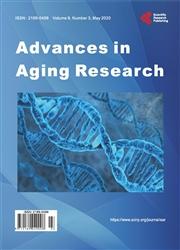Daily Life and Planning for the Future of Ageing People with Down Syndrome: Results from a National Study on Caregivers
引用次数: 0
Abstract
Background: Limited research concerns the study of continuity in the future of the physical and social status of elderly people with DS that is when people who take care of them will not be there anymore (“after we have gone”). Objective: From a biopsychosocial perspective, to investigate the daily life of ageing people with Down Syndrome over 45 years old in order to identify the most important issues in better planning for their future. Methods: A cross-sectional Italian national study was carried out. An ad hoc questionnaire was administered to formal and informal caregivers of aging people with Down Syndrome. Results: 136 family members and health professionals were involved. Most of the people with Down Syndrome live at home, attend a daily center and do many activities. Most of them had never worked and she/he is not at all autonomous. 25% of caregivers declared that, nowadays, there is not planning for the future, and 30.9% of participants who planned their future collected information when it occurred (e.g. when the parents pass away). Conclusions: The aging of people with DS requires attention to the planning of their future. In order to better plan, it is necessary to avoid programming “in emergency”, but for time, keeping in mind of the activities developed by the people, their abilities and all of the elements that have allowed them to live well up to a point of their life.唐氏综合症老年人的日常生活和未来规划:一项关于照顾者的全国性研究结果
背景:有限的研究涉及对患有DS的老年人的身体和社会地位在未来的连续性的研究,即当照顾他们的人不再在那里时(“在我们离开之后”)。目的:从生物-心理-社会的角度,调查45岁以上唐氏综合症老年人的日常生活,以确定更好地规划他们未来的最重要问题。方法:进行一项意大利全国性的横断面研究。对患有唐氏综合症的老年人的正式和非正式护理人员进行了一项临时问卷调查。结果:136名家庭成员和卫生专业人员参与。大多数唐氏综合症患者住在家里,参加日常活动中心,并参加许多活动。他们中的大多数人从未工作过,她/他根本就没有自主性。25%的照顾者表示,如今,没有对未来进行规划,30.9%的规划未来的参与者在未来发生时(例如父母去世时)收集了信息。结论:DS患者的老龄化需要注意对其未来的规划。为了更好地进行计划,有必要避免“在紧急情况下”进行编程,但在一定时间内,要记住人们开展的活动、他们的能力以及使他们能够过上好日子的所有因素。
本文章由计算机程序翻译,如有差异,请以英文原文为准。
求助全文
约1分钟内获得全文
求助全文

 求助内容:
求助内容: 应助结果提醒方式:
应助结果提醒方式:


